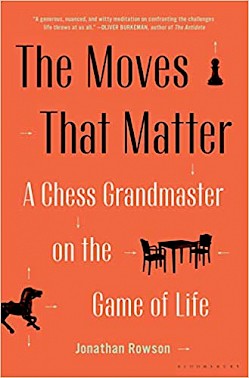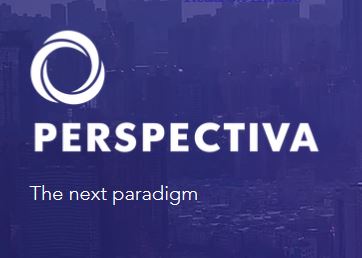
 Last year, 2019, my views on the state of the world changed significantly. I became aware of several thinkers, one of whom was Jonathan Rowson. He is a co-founder of Perspectiva which uses the tag line “The next paradigm.”
Last year, 2019, my views on the state of the world changed significantly. I became aware of several thinkers, one of whom was Jonathan Rowson. He is a co-founder of Perspectiva which uses the tag line “The next paradigm.”
I began spending some time on the Perspectiva website. I soon learned that Rowson published a book late in 2019 entitled The Moves That Matter - A Chess Grandmaster on the Game of Life. The book has a note about the author.
Jonathan Rowson is a writer, philosopher and chess Grandmaster who was British Chess Champion 2004 – 6. He holds degrees from Oxford, Bristol and Harvard universities and was formerly director of the Social Brain Centre at the RSA and an Open Society Fellow. In 2016 he became co-founder of Perspectiva, where he leads research on the interplay of systems, souls and society.
I played chess in my youth, following in the footsteps of my older brother and my father. I was the strongest player in my high school and often played during noon hour. But about twelve years later I learned that I was not very good at the game at all.
In the early 1980s I met Dusan Milutinovic and we became good friends. We played chess but that did not last very long. Dusan crushed me, easily, every time. He completely destroyed my interest in chess and thereafter I rarely played. But that is not all he did, as I will explain later.
Jonathan Rowson ended his professional career as a chess player. He became more interested in the game of life than the game of chess. I share that interest which is why I became interested in his book.
In the Introduction Rowson writes,
There is a game with sixty-four squares, thirty-two pieces and some rules, but it is chess that has become a metaphor for human battles big and small, an enchanting mirror for the psyche, and an icon for all that is deep and difficult.
This book is a philosophical offering on chess as a metaphor for life as a whole.
I have learned that it is precisely because chess is both something that doesn’t really matter and something that matters enormously that the game is something else too: a gateway to the enigma of life. This book is about the challenge of living well in the context of that enigma.
One does not need to love chess, or to even know the game, to appreciate the wisdom in this book. Rowson writes with clarity and experience about the game of life. He does not suppress his passion for chess, which I never shared, but his focus remains steadfast on our lives as human beings.
The book is organized like a chessboard. There are eight parts, each of which contain eight sections. This results in sixty-four lessons about life which I will summarize separately.
In his concluding chapter Jonathan Rowson describes how he has moved on from the world of chess.
It has taken me a while to accept it, but I think I always felt truer to myself when I was reflecting on what chess means for life as a whole than when I was trying to win tournaments.
What I seek and value are additional perspectives on the present, alternative ways of sensing what is happening, and an oblique vantage point that feels helpfully other.
I feel socially and intellectually stretched while grappling with wicked policy problems and being a distinctive part of public debate.
Back in the early 1980s, Dusan noted my waning interest in chess. He suggested that perhaps I would be more interested in the oriental board game go. He taught me how to play and that is the game I grew to love. I never came close to playing at the level of Dusan. But because of its simple handicapping system, I enjoyed playing no matter what the strength of the other player.
I am now on the lookout for a book about the game of go as a metaphor for life. The game of chess reflects the western mind while the game of go would reflect an eastern mind. I am interested in both perspectives.
Here is a link to my lengthy summary of The Moves That Matter.
 https://www.systems-souls-society.com/
https://www.systems-souls-society.com/
Much on this website inspires me.
We are a research platform that seeks to build the intellectual foundations for a more conscious society – a diverse and plural society awake to itself, united by an awareness of ecological constraints, systemic influences and the development of human empathy and consciousness throughout the lifespan.
We believe the world’s major challenges stem from a crisis of perception and imagination, and the failure of political culture to honour the fullness of reality. We are fascinated by the myriad ways in which our tacitly held worldviews shape our judgement, and how spiritual needs for security, meaning and purpose indirectly create political and economic outcomes.
This is a wonderful document about PERSPECTIVA.
https://c05b336b-f3a1-4e20-8ff2-31449be7bab7.filesusr.com/ugd/3ff9b4_14fbdf06f5af4359a80dc13d8278fdca.pdf
Some work on problems within particular policies
– Solve the problem!
Some work on policies within particular systems
– Amend the policy!
Some work on systems within particular paradigms
- Change the system!
Perspectiva works on transforming the paradigm
- Deepen the process of system change.